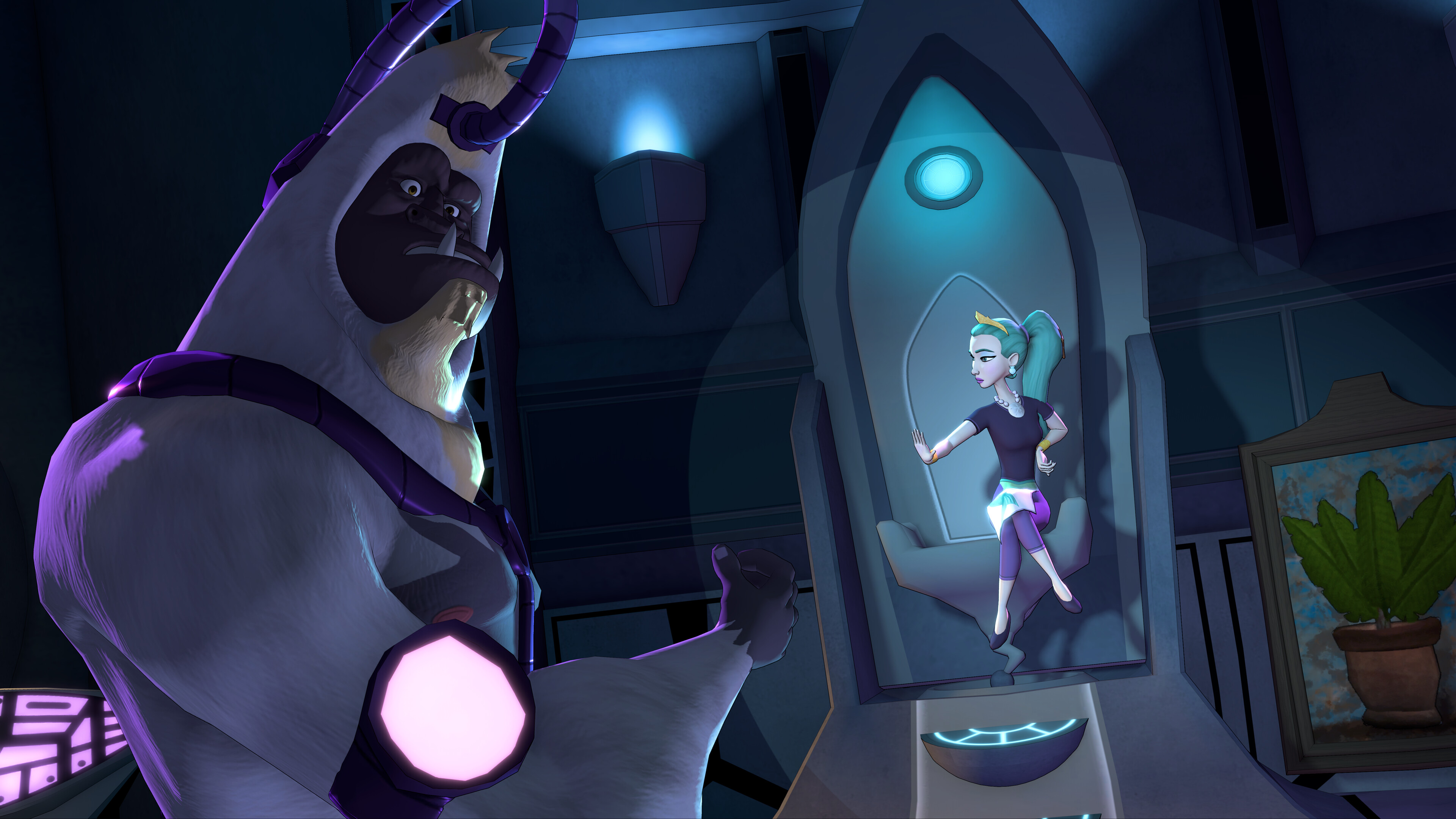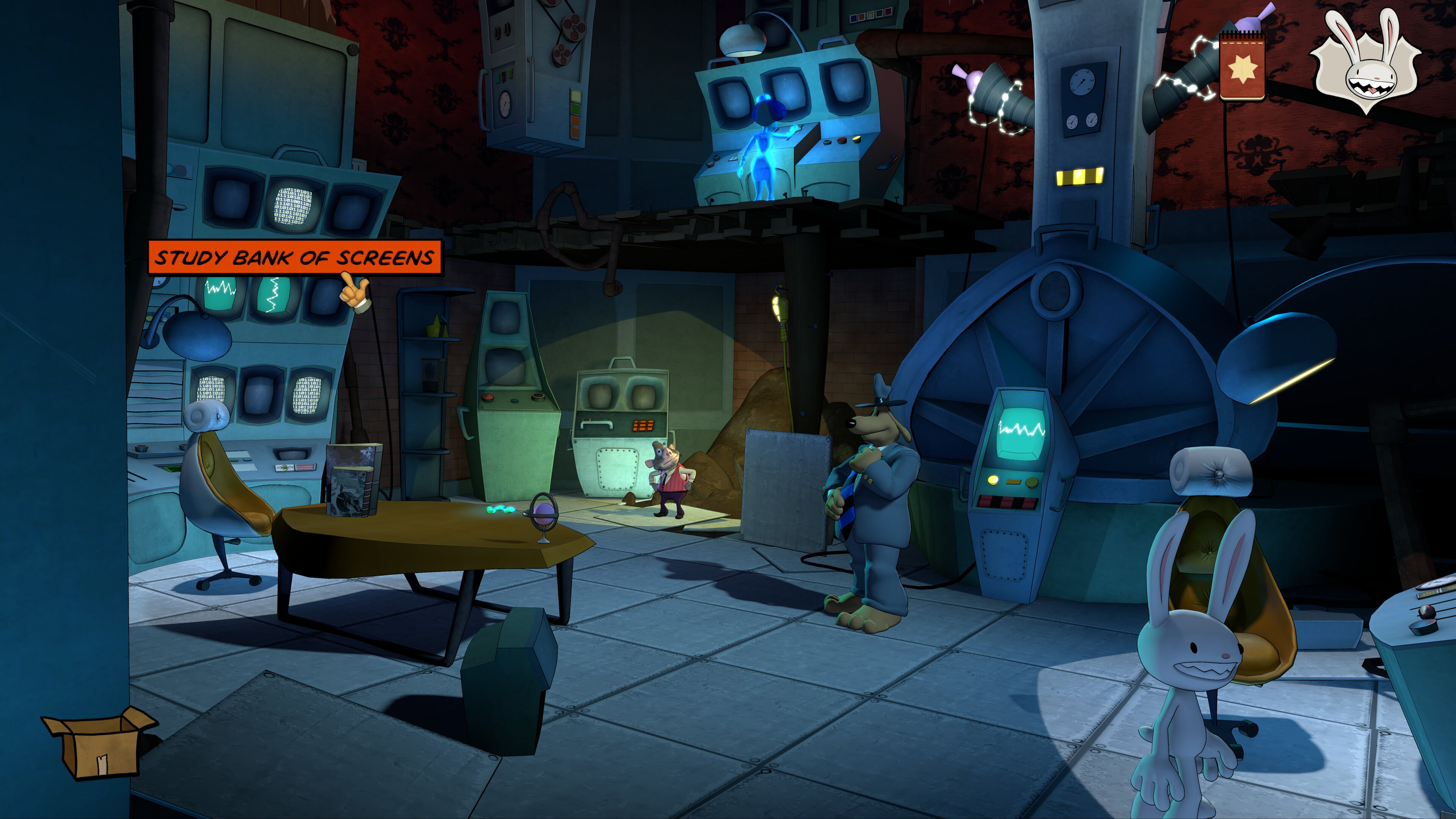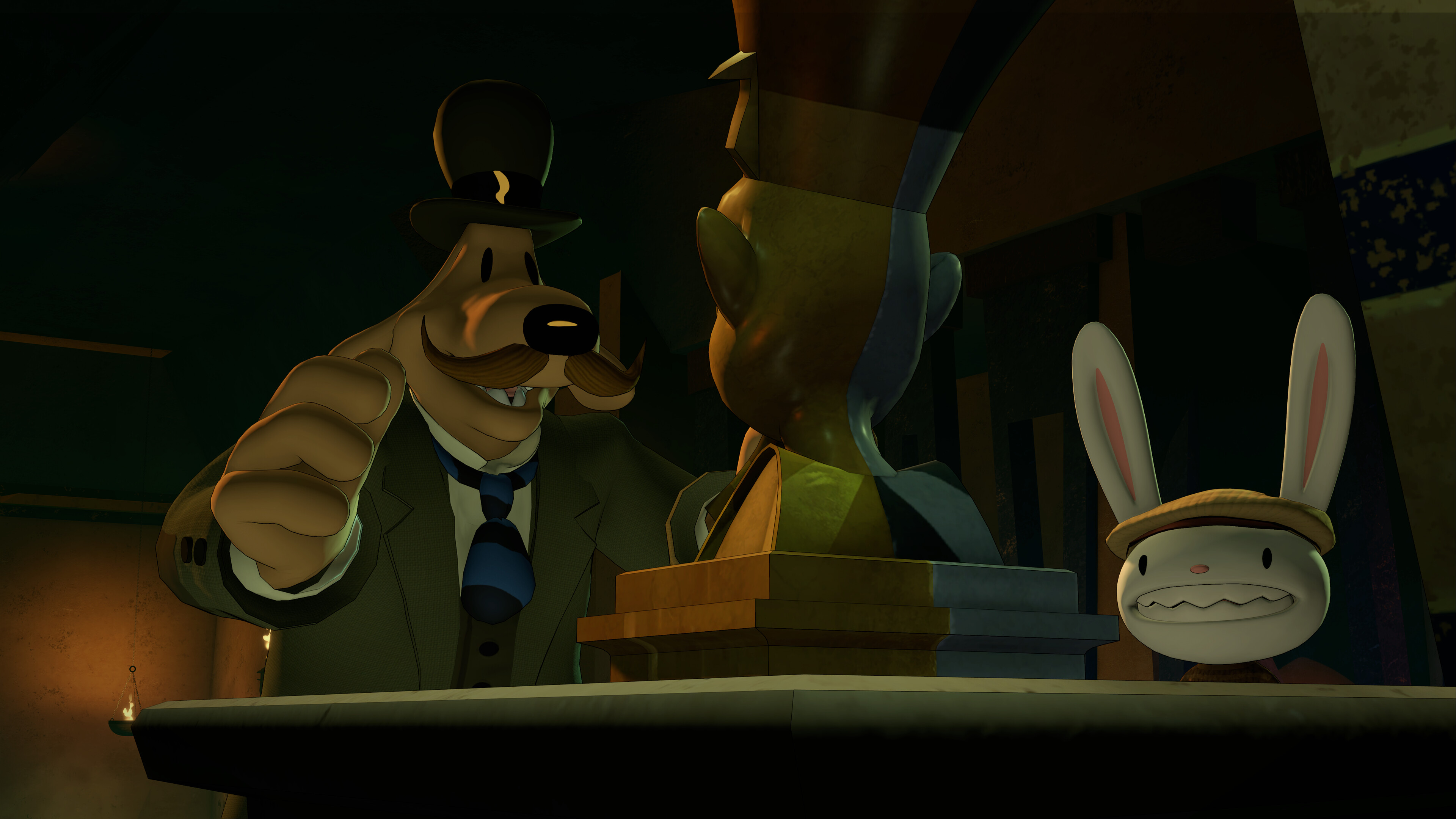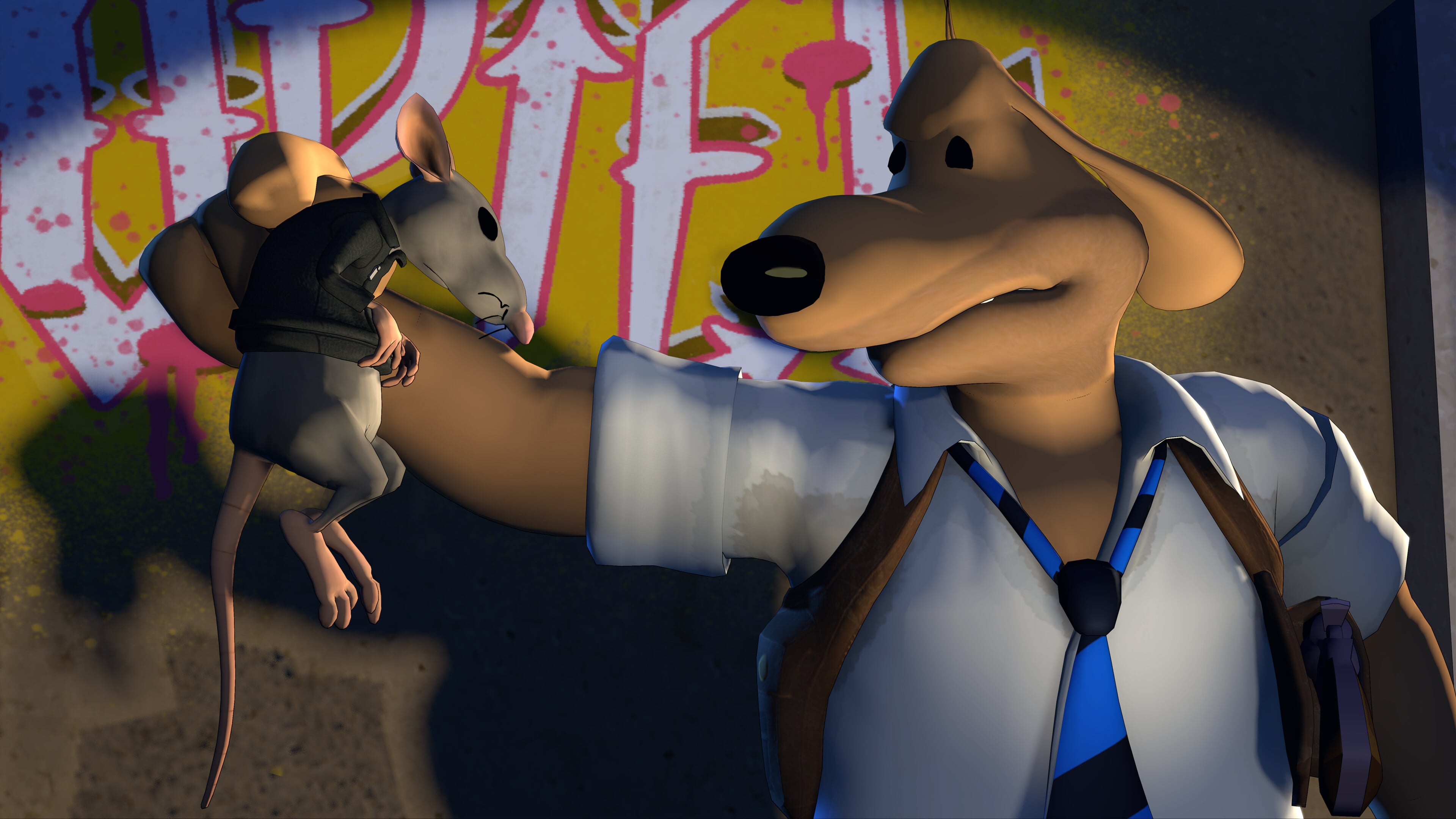Sam & Max: The Devil’s Playhouse Remastered PC Review
Summary: Sam & Max: The Devil's Playhouse Remastered is a masterful remaster of a highly entertaining game. The game has a unique narrative structure, inventive gameplay, and engaging new elements.
4
Playfully Delightful
Sam & Max: The Devil’s Playhouse is the third season of Telltale Games’ episodic adventure series, originally released in 2010. In 2024, developer Skunkape has remastered the game for modern audiences and some modern consoles, giving it a brand new look and better performance. The remaster provides an amazingly entertaining experience with few things to complain about.

Sam & Max: The Devil’s Playhouse is divided into five episodes, each building upon the next to create a cohesive and engaging narrative. Unlike other point-and-click adventure games, it introduces several innovative mechanics that set it apart from its predecessors and other games in the genre.
The game’s story starts as the series’ dynamic deuteragonists, Sam and Max, encounter the Toys of Power. These ancient artifacts grant Sam, Max, and various other characters unique abilities. Max, in particular, gains several psychic powers throughout the season, which play a significant role in both the story and gameplay mechanics. The narrative unfolds across five episodes: The Penal Zone, The Tomb of Sammun-Mak, They Stole Max’s Brain!, Beyond the Alley of the Dolls, and The City That Dares Not Sleep. Each episode explores different themes and settings, ranging from a noir detective story to a nightmarish cityscape and a sci-fi themed story, all while maintaining the series’ trademark wit and humor.
The writing in The Devil’s Playhouse is sharp, with plenty of clever dialogue, puns, and pop culture references. The humor is often absurd but incredibly humorous, and the writing takes advantage of the series’ many recurring outrageous characters. While the humor doesn’t always hit, especially with the rate at which characters crack meta jokes, even when compared to other titles, each episode still has many moments and jokes that will have you almost rolling on the floor.

The narrative, while simplistic, gets its depth from the many scenarios each episode presents, and the intricacy of how the puzzles blend with the narrative is incredibly impressive. The game’s episodic structure works well, with each episode offering a self-contained story that contributes to the larger narrative. This format allows for diverse settings and scenarios, keeping the gameplay fresh and engaging from start to finish. While the episodic nature does lead to some pacing issues—particularly in the transition between episodes—the overall experience remains cohesive and satisfying.
This season also delves deeper into the characters of Sam and Max, exploring their friendship and the dynamics of their partnership in more nuanced ways than previous seasons. The game’s story is tightly woven and it keeps players engaged with its unexpected twists and turns. Visually, The Devil’s Playhouse is a significant step up from the previous seasons. The game features more detailed character models, improved animations, and more dynamic camera angles that enhance the game’s cinematic feel. The environments are varied and richly detailed, with each episode presenting a unique aesthetic that complements the story’s themes.
Upon launching the remaster, players will notice the incredibly overhauled visuals, which look night and day compared to the original. Character and object models retain quality from the previous remaster and look highly detailed, emotive, and well-designed. Backgrounds are equally amazing as the remaster allows players to appreciate all the unique details of each level, from the pigeons picking at pizza boxes to snowmen in the streets; the game looks better than ever and, as a result, is more immersive than ever.

Gameplay-wise, One of the most notable aspects of The Devil’s Playhouse is the introduction of Max’s psychic abilities, which add a new layer of interactivity and puzzle-solving to the traditional point-and-click gameplay. Max’s powers include telepathy, the ability to transform into objects, the power to summon visions of the future, teleportation, ventriloquism, oddly enough, and more. These abilities are integral to progressing through the game, as players must figure out how to use them in various scenarios to solve puzzles and advance the story.
The puzzles in The Devil’s Playhouse are generally well-designed, balancing challenge and creativity. Puzzles boil down to speaking to characters, learning details you’ll need to progress further, and figuring out how to acquire items you’ll need to progress. Players usually do this by finding creative ways of using Max’s powers to find items, get to closed-off areas, or get items from a stubborn character. The game also features some action-oriented sequences, but these are more about timing and quick thinking than reflexes.
However, some puzzles go beyond being creatively intricate to being unnecessarily time-consuming. Some puzzles in the game require several steps to solve. For example, in an earlier episode, players must find ways to get an item by finding where it is and convincing its holder to give it up. However, they can only do this by finding another item to give to a different character to get an item to give to the desired character, who will then give up the item. So, while some puzzles are as easy as using deduction or simple logic, others require multiple steps, which can be unnecessarily tedious.
This entry also features the same excellent voice acting from the previous titles, which brings the quirky characters to life. David Nowlin and William Kasten return as the voices of Sam and Max, respectively, delivering humorous and heartfelt performances. The game’s soundtrack, composed by Jared Emerson-Johnson, is equally strong, featuring a mix of jazzy tunes, eerie melodies, and epic scores that perfectly match the tone of each episode.
Performance-wise, the remaster runs excellently on PC and runs at a crisp and stable framerate with no glitches, lags, or bugs. However, while the PC version allows for better framerate and visual fidelity, it unfortunately doesn’t feature any advanced PC features.

Final Thoughts?
Overall, Sam & Max: The Devil’s Playhouse Remastered is a masterful remaster of a highly entertaining game. The game has a unique narrative structure, inventive gameplay, and engaging new elements. With its compelling story, lovable characters, and clever puzzles, it is a shining example of what episodic adventure games can achieve. Whether you’re a longtime fan of Sam & Max or a newcomer to the series, The Devil’s Playhouse offers hours of humorous adventures.







